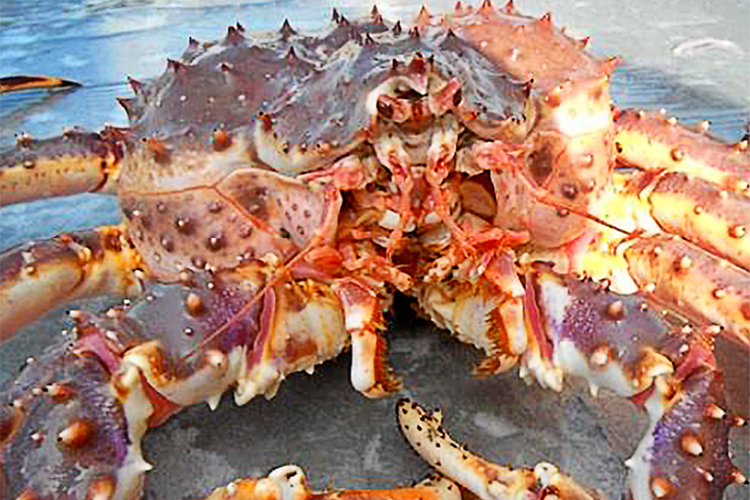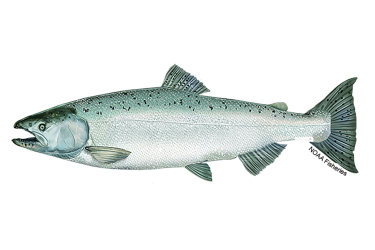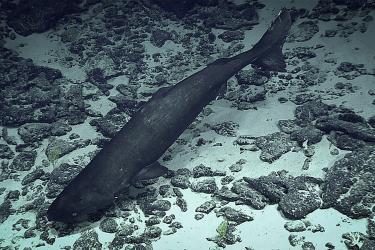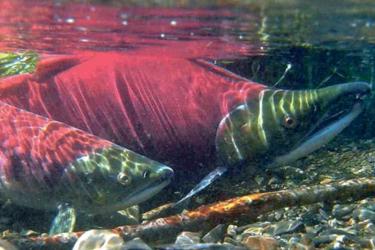NOAA Fisheries has denied a request for emergency action to close the red king crab savings area and red king crab savings subarea to all fishing gears from January 1, 2023 to June 30, 2023. The Alaska Bering Sea Crabbers submitted the petition on September 28, 2022 to protect Bristol Bay red king crab and their habitat at a time of historically low crab abundance.
The red king crab savings area was established in 1996. It is permanently closed to bottom trawling but is open to pelagic trawling, pot fishing, and longlining.
Request Did Not Meet Criteria
NOAA Fisheries is denying the request for emergency action because the petition does not meet the criteria necessary to determine that an emergency exists. Specifically, the available information does not support a finding that the proposed emergency regulations would address the low abundance and declining trend of mature female Bristol Bay red king crab. The immediate benefits of emergency rulemaking in this case do not outweigh the value of advance notice, public comment, and deliberative consideration of the impacts on participants under the normal rulemaking process.
NOAA Fisheries prepared an analysis on this proposed emergency action. It was posted to the North Pacific Fishery Management Council website on November 29, 2022, and presented to the Council at its December 2022 meeting. The analysis explored the best scientific information available as it applies to this request.
At that meeting, the Council chose not to recommend emergency action to the Secretary on the requested closure to all fishing gears from June 1 to June 30, 2023. The Council initiated an action to develop management measures focused on reducing Bristol Bay red king crab mortality from groundfish fishing during years of lower abundance. NOAA Fisheries is committed to working with the Council and stakeholders to address low red king crab abundance.
Disaster Declarations Declared for the Fishery
On December 16, 2022, the Secretary of Commerce approved disaster declarations for fisheries in Alaska and Washington State.
For Alaska, fishery disaster determinations included:
- 2022/2023 Alaska Bristol Bay Red King Crab and Bering Sea Snow Crab fisheries
- 2021/2022 Alaska Bristol Bay Red King Crab and Bering Sea Snow Crab fisheries
- 2020 and 2021 Alaska Norton Sound Red King Crab fisheries
We will work to facilitate relief funding through this process as quickly as possible. This process is completely separate from the one involving the petition for emergency action.
Commitment to Increasing Resiliency of the Fishery
NOAA Fisheries remains concerned with the ongoing impacts of the low crab abundance in Alaska on crab fishermen and communities. Direct losses from harvest cancellations this year amount to $287.7 million, according to state estimates. Total losses for crab dependent harvesters, processors, communities, and support businesses likely far exceed this loss in exvessel value, the price received by fishermen for their catch. We remain committed to working with the Council and stakeholders to develop and examine management measures to build more resiliency for Alaska’s crab fisheries.
NOAA Fisheries and the Alaska Department of Fish and Game are supporting an urgent cooperative research project. It was proposed by the Alaska Bering Sea Crabbers and the Bering Sea Fisheries Research Foundation, and is focused on Bristol Bay red king crab. The project would use crabbers as research platforms in the Red King Crab Savings Area beginning in March 2023 to collect data that could help inform management decisions as early as fall 2023.







